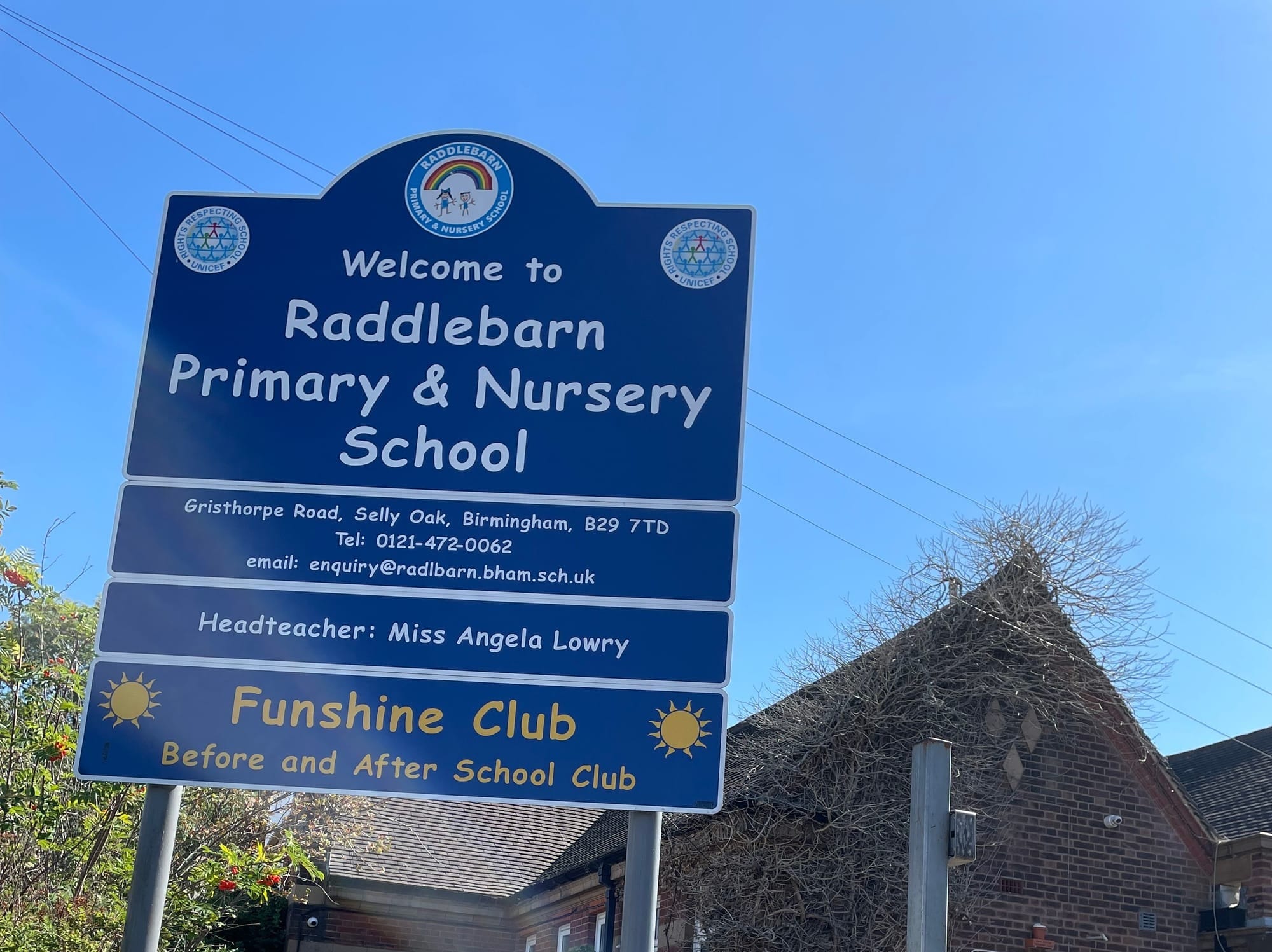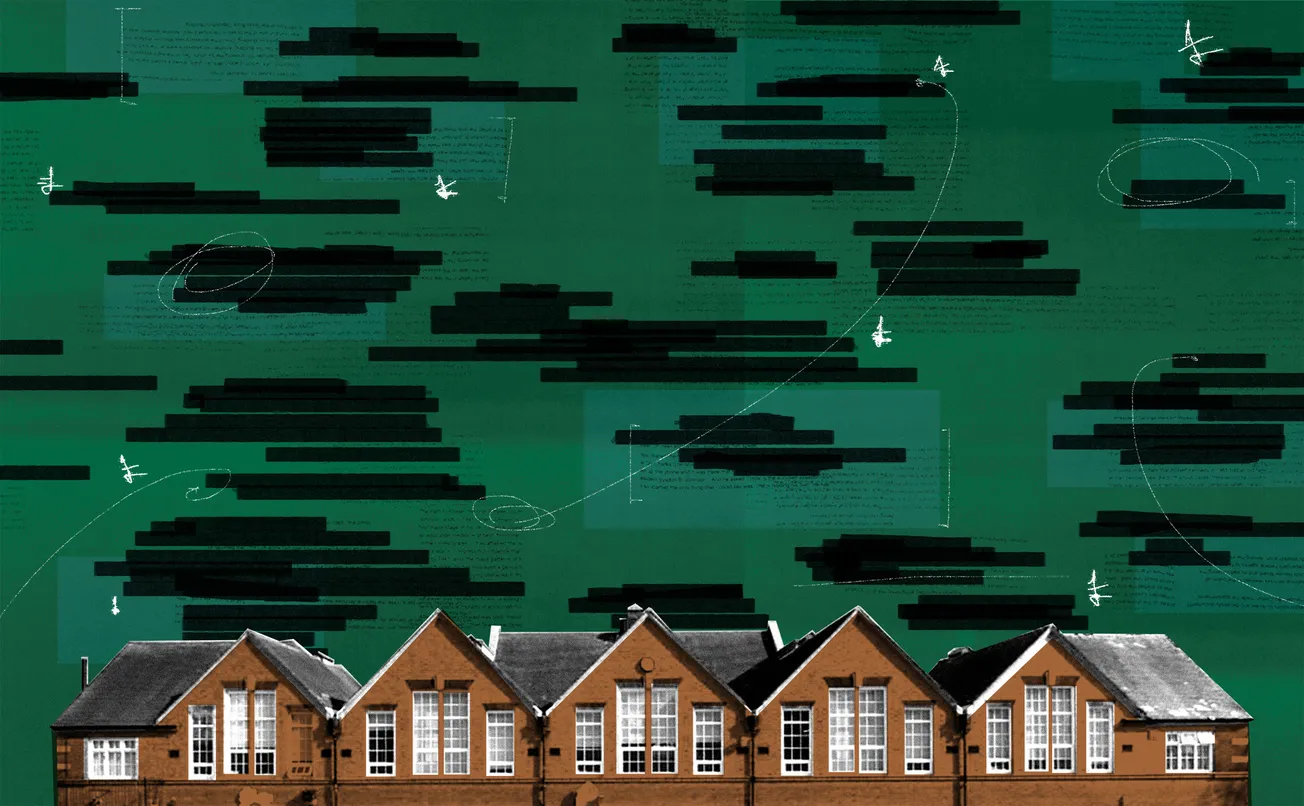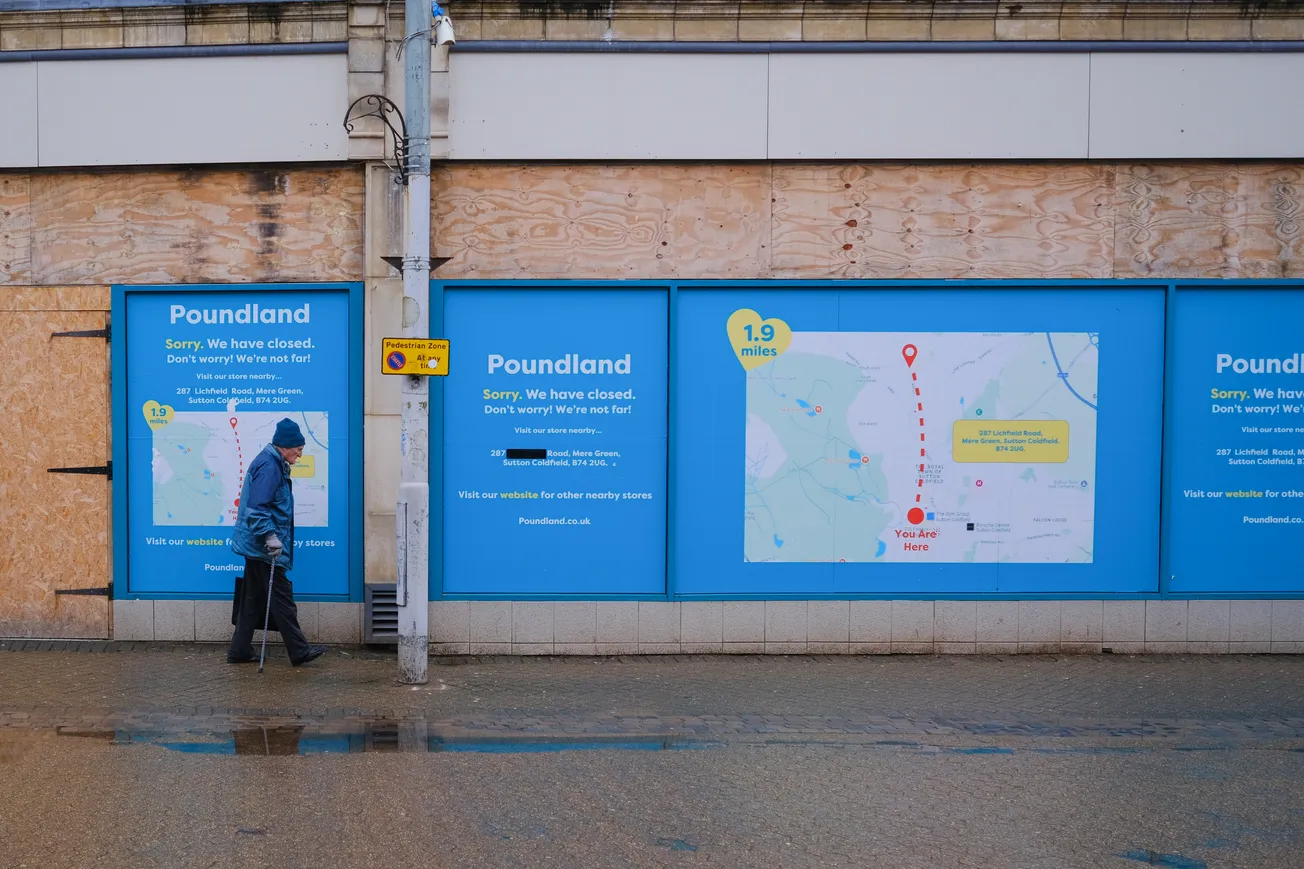Want to work for Britain’s most exciting new media company? The Dispatch is looking for a new staff writer to join Samuel and Kate in leading a renaissance in high quality local journalism in Birmingham. This is a job for a journalist who believes in our mission, loves the kind of reporting we do and is passionate about applying our brand of journalism to many more stories in the years ahead.
We need someone who has a natural flair for writing — who will deliver the kind of stories our readers look forward to when they open our newsletters. If you fit the bill, or know someone who does, please click the button below to find out more.
This story is for paying subscribers of The Dispatch. If you want to be more informed about your city, and entertained by good old-fashioned storytelling in the process, sign up for a full membership now. You get four editions a week and right now, it's just £2 a week.
In return, you'll get access to our entire back catalogue of members-only journalism, receive all our editions and exclusive news briefings, and be able to come along to our fantastic members' events. Just click that green button below. Sign up below to support local journalism.
Today, we go inside the fall out between parent-governors and the headteacher of Raddlebarn Primary School, over a big pile of debt.
Isabel* sensed something wasn’t right from the very first committee meeting. But she couldn’t put her finger on what.
It was October 2022 and she was excited. She was at Raddlebarn Primary School after hours, corridors normally full of chattering children now empty and silent. In a small meeting room, a group of adults were gathered, a mix of senior school staff and parents who acted as governors for the school.
Isabel was newly appointed to the latter group. Previously treasurer of the Friends of Raddlebarn, a parents and teachers association, Raddlebarn’s glossy headteacher, Angela Lowry, had recently recommended Isabel join the governor board.
Isabel was proud to be asked, and relieved. Her mother had just died; she had time on her hands, and grief to channel. Plus, she was invested in the little red-brick Selly Oak school her children attended. It was a place with so much potential, struggling against budget cuts. Maybe, thought Isabel, with her background in financial services, she could help.
But as Angela Lowry introduced Isabel to the school’s financial officer, a cheerful man called David, and the meeting began, a sense of unease settled over her.
“I felt really, really uncomfortable,” she remembers. “Everyone seemed very friendly and happy, but I didn't see any actual financial control happening.”
Her instincts were onto something. Today Raddlebarn is sinking under a financial deficit of over £400,000. (Last year, the council recorded that 39 out of its 212 schools were in deficit by an average of £287,179 per school.)
Questions abound about financial irregularities surrounding the institution and Angela Lowry’s management of funds.
But despite a 24-page report commissioned by Birmingham City Council that singles out Angela Lowry, it has been Raddlebarn’s parent governors who’ve found themselves under investigation by the council.
While no direct evidence of fraud was found, the auditors said a number of missing receipts on Lowry’s purchase cards “could not rule out one way or another the possibility that those purchases may not have been school related.”
The governors wish to stay anonymous as their children still attend Raddlebarn. Isabel says the decision to talk to The Dispatch is a last resort in getting Birmingham City Council, and the school, to accept responsibility. “We've contacted so many people and been so discreet, yet [we’re] still called bullies and to now go to the press, I'm not sure it will force them to do anything differently.”
“We were easy targets,” Louise*, another parent-governor tells The Dispatch. “Easier to get rid of us than investigate the headteacher.”
The council, Louise acknowledges, has a duty of care to its staff. But for voluntary workers like her, there was none. The experience, she warned, should serve as a cautionary tale to anyone considering stepping into the role of school governor.
When approached by The Dispatch, Lowry said she had been away from Raddlebarn due to ill health. “I am not in a position to comment in detail on some of the operational and financial matters you refer to.”
The missing receipts
In that first October 2022 meeting, Isabel kept her uneasy feeling to herself but she was struck by how little material had been shared in advance by Lowry and David Bagley. In her role, she was expected to scrutinise and review the budget, then give the nod to the wider governing board for the finances to be signed off. “I felt empowered to do the role,” she says, “but given no data to actually perform it. You can't perform a governance function with no information.”
Maybe she was being overly cautious, Isabel counselled herself. She was new. Perhaps there were documents somewhere that she just hadn’t seen yet.
But at the next quarterly finance committee meeting, in March 2023, Angela Lowry made a worrying disclosure: she couldn’t produce receipts from transactions made using purchase cards issued to her and Raddlebarn’s previous business manager.

The cards were for the purpose of buying school equipment; only three senior staff held one. Each purchase was supposed to be backed up with a receipt and a staff member’s signature, for audit purposes.
The scheme was meant to alleviate Raddlebarn’s shortages. Louise, volunteered at the primary for six years as a teaching assistant. She saw pupils asking for basic things like pens and rulers, only to be told by teachers they couldn’t order more because the budget wouldn’t stretch. Louise began buying stationery out of her own money and bringing them in on her volunteer days.
“If a kid said: ‘I need a new rubber,’ I could just hand one over,” she recalls.
In the March committee meeting, Lowry assured governors that the purchases had been properly audited but the receipts could no longer be found. She told the meeting she’d already alerted Don Price, the council’s chief auditor, to the problem.
According to Lowry, Price wasn’t fazed. He supposedly told the headteacher: ‘Don’t worry, these things happen.’”
Despite the missing receipts, Lowry still campaigned for the annual budget to be signed off.
Isabel, and Mary* another parent-governor on the finance committee, who wishes to remain anonymous, weren’t prepared to do that. When she got home, Isabel recounted what had happened in her diary, notes which she shared with The Dispatch.
“Lowry pushed [Mary] to raise any questions she had now as the budget ‘must be signed off today’,” the entry reads. “Mary confirmed she’d need time to review the budget and supporting documents before she’d be able to formulate her questions”.
But Angela Lowry was insistent: the budget “must be signed off today,” she ordered the pair.
Isabel calmly explained the committee had to be allowed time to review all relevant documents before they could approve the budget. David Bagley stepped in, delaying the decision until the end of May. The meeting was adjourned.
At home, Isabel scribbled more thoughts in her diary, writing: “I had the feeling [Lowry] had grown accustomed to sending meeting materials so late that governors couldn't possibly review them and then putting governors on the spot to sign things off to meet her deadlines without review. The governors were just not willing to do that and Miss Lowry seemed unable to cope with the situation.”
Looking back, Isabel says that the March meeting is when the dynamic between her and Angela Lowry changed for good.“[Before], I was a nice, helpful parent doing stuff for the school,” she notes. “[After], I could tell Lowry perhaps regretted asking me to join as a governor. I think she realised: ‘She is going to ask questions, and I'm not going to want her to ask questions.’”
The money man
Lowry was right. Isabel was asking questions. The first one concerned David Bagley: who was he? What qualified him to be giving financial advice to this little primary school?
Isabel started digging. She discovered that David Bagley had previously served as the director of DRB Ignite Multi Academy Trust. Since its creation in 2014, the Trust has grown to oversee 12 schools in the West Midlands. But Bagley had left in 2017, after the company was reprimanded by the Education and Skills Funding Agency (ESFA) in 2017 for “significant failings” in financial management and governance.
That was the same year Angela Lowry arrived at Raddlebarn Primary School as headteacher. She’d previously come from a Northfield school, which had converted to an academy — under the DRB Ignite Multi Academy Trust.
A year after Lowry became Raddlebarn’s headteacher, David Bagley was brought in as a consultant to oversee the school’s budget. He’d set up a new company: DRB Schools and Academies Services Limited, one of many listed under Bagley’s name on Companies Houses, all with very similar names.
Currently, the consultant has 32 appointments in companies, of which six are current and three are in liquidation. His previous company, DRB Schools and Academies Services, went into liquidation with debts worth £853,383.01. The company was due to wind up its activity on 21 July 2017. Two days before, Bagley changed the company name to DRB Schools and Academies Services Limited. A near-identical firm, operating seamlessly, as if nothing had happened. Isabel was troubled. Why did Angela Lowry trust this man to have oversight of Raddlebarn’s financial systems?
When approached by The Dispatch, a spokesperson for Bagley said he “supported” the school between July 2018 and March 2025. Bagley said he has “never been an employee of the school or a member of the Governing Body or the IEB [interim executive board] and has never had any decision making powers.”
A Christmas party purchase raises suspicion
But David Bagley was only a small part of a bigger issue. In June, fellow parent-governor Louise heard a worrying admission from one of Raddleburn’s office staff: Lowry had still not submitted her purchase-card receipts.
The staff member also disclosed Lowry had recently asked them to make a last minute conference booking for herself and the deputy headteacher on the school’s purchase card. They had refused the request, feeling uncomfortable.
Louise took her findings to Isabel and Mary. “We said: ‘Oh Christ, this is indicative of it being a systemic wider problem’,” remembers Isabel. “Not that there were some historical receipts lost, but a problem with procurement, support, maybe validity.”
The trio got in touch with John Preston, an auditor at Birmingham City Council, about their concerns.
“Right,” said Preston, pulling up the transaction log for Angela Lowry’s purchase card – which, of course, concerns public money. He began asking them questions about some of the entries. Did they know anything about vehicle leasing?
No, the governors said, the school bus was not leased.
Pet expenses? Had the school recently hired a DJ?
No and no.
“Most items,” says Isabel heavily, “did not make sense”.
After that the auditors descended on Raddlebarn, visiting Angela Lowry four times between June and October 2023.
When asked for relevant receipts, Lowry would say “‘I thought I'd already given you those,’” claims Louise. It was “delay, delay, delay, delay”.
Exasperated, Louise contacted the council's School & Governor Support Service (SG&S). She told them she was worried about Lowry’s wellbeing, and the leadership culture at the school.
The SG&S suggested an external review into the school’s leadership, to provide an “unbiased way forward,” Isabel jotted in her diary at the time.
The full review was conducted in December 2023 by George Craig, an education consultant and national leader in governance, with experience working in several Birmingham schools. He didn’t really ask “probing questions,” records Isabel’s diary. Craig wanted to know what Isabel’s experience as a governor at Raddlebarn had been like.
“I don't want to encroach on school operations or leadership given it's not my role and the school has amazing staff in place,” Isabel states in her diary. “I left the meeting hopeful of a positive way forward for the school.”
Five days before Christmas 2023, Craig emailed over the draft of the report to Angela Lowry. Louise was cc’ed in. She read it, her heart sinking, then immediately forwarded the findings to Isabel.
The review was into leadership problems alright — but it identified the governing board as the culprit. Both Louise and Isabel had been accused of ‘bullying’ by Lowry.
A copy of the document, seen by The Dispatch, concludes that: “The headteacher [Angela Lowry] has reported instances of bullying and being targeted by some individual governors in recent months."
Isabel was crushed, writing in her diary: “I felt totally stitched up.”
She’d taken on the volunteer governor role to “drive forward improvements”. Uncovering Raddlebarn’s messy finances and trying to answer big questions about Angela Lowry’s management of the school’s funds was surely just doing her duty to govern? All those long hours in gruelling meetings discussing the school’s finances, and ultimately future, had seemed like they could result in change.
But now, a council-administered report had it in black and white — this was bullying.
Isabel had hope though; she knew the auditors’ report into Raddlebarn’s financial situation was due soon. Surely that would validate the concerns she and other parents had?
A few weeks later, in January 2024, Isabel received a draft of the auditor’s report. She was relieved. Lowry was found to have mismanaged funds at the school. Auditors documented a litany of worrying financial behaviour, including unexplained cash withdrawals, questionable purchases for a therapy dog and staff hospitality, and items delivered to the headteacher’s home address.
In May 2021, for example, two cash withdrawals totalling £650 were made — £450 by Lowry and £200 by Raddlebarn’s former business manager.
Lowry explained the transaction by saying she had intended to take out £250, but “panicked when at the Halifax ATM and had withdrawn the full £450 by mistake.”
Lowry’s story, according to the report, was that she phoned the council’s Purchase Card Administration team for approval and was told to “keep the cash in the safe and use it for purchases, keeping receipts for those purchases and notes to explain what the purchases were for.”
Birmingham deserves great journalism. You can help make it happen.
You're halfway there, the rest of the story is behind this paywall. Join the Dispatch for full access to local news that matters, just £8/month.
SubscribeAlready have an account? Sign In







